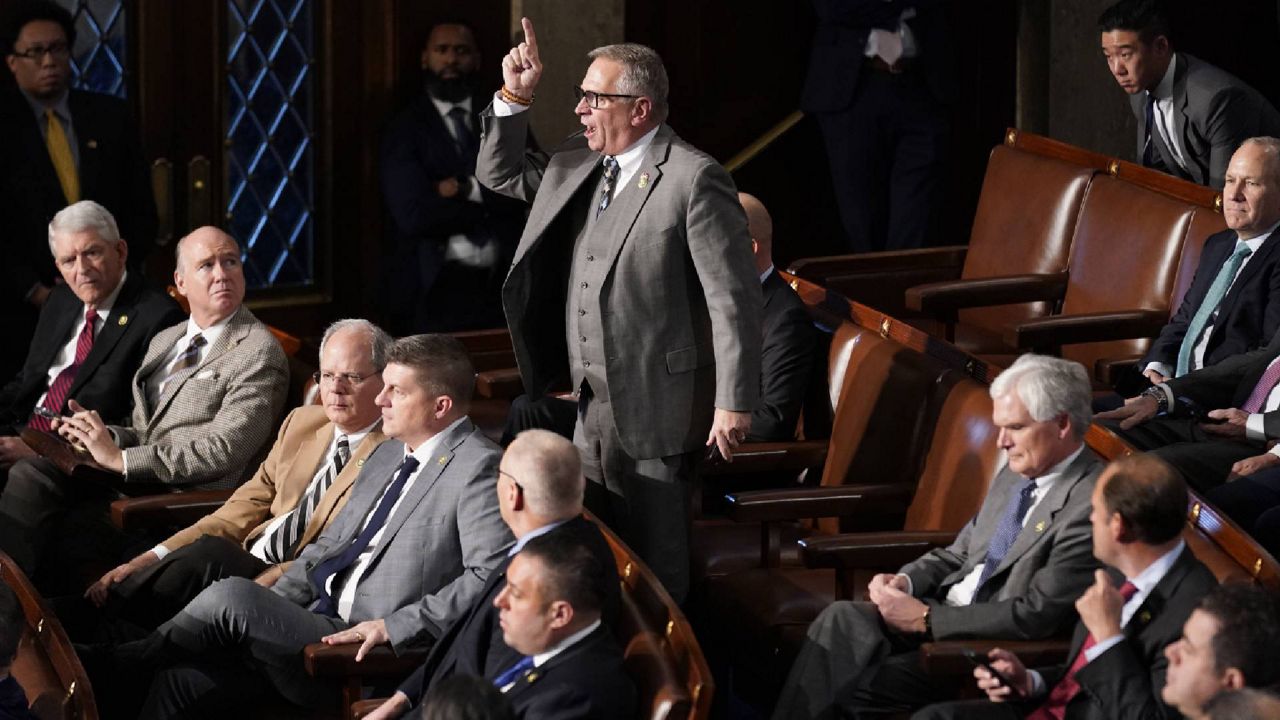WASHINGTON — Republican Kevin McCarthy flipped more than a dozen colleagues to support him in dramatic votes Friday for House speaker, moving closer to victory on the fourth day and 13 ballots of a grueling standoff that was testing American democracy.
The changed votes from conservative holdouts, including Illinois U.S. Rep.-Elect Mary Miller, put McCarthy close to seizing the gavel. It was the first time he had won the most votes, 213, though he still fell short of a majority through 13 votes as of midday Friday. The House adjourned until 9pm CT Friday.
The stunning turnaround came after McCarthy agreed to many of the detractors' demands -- including the reinstatement of a longstanding House rule that would allow any single member to call a vote to oust him from office. That change and others mean the job he fought so hard to gain will be somewhat weakened.
The showdown that has stymied the new Congress came against the backdrop of the second anniversary of the Jan. 6, 2021 insurrection.
A few minutes before voting began in the House chamber, Republicans tiring of the spectacle walked out when one of McCarthy's most ardent challengers railed against the GOP leader.
“We do not trust Mr. McCarthy with power,” said Republican Matt Gaetz of Florida, as colleagues streamed out of the chamber in protest of his remarks as he nominated Rep.-Elect Jim Jordan R-Ohio for Speaker.
The remarks brought an objection from another Metro East area lawmaker, Rep.-Elect Mike Bost, who spoke out against Gaetz using McCarthy’s name, bringing an admonishment from the House Clerk.
A spokesperson for Bost did not immediately respond to a request for comment Friday.
Contours of a deal with conservative holdouts who have been blocking McCarthy's rise emerged, but agreement had seemed still out of reach after three dismal days and 11 failed votes in a political spectacle unseen in a century.
Miller, who also voted for McCarthy on the 13th ballot which remained unsuccessful in ending the larger stalemate, wasn’t specific about the negotiations but framed them as “a historic conservative victory.”
The chamber is unable to swear in members and begin its 2023-24 session. McCarthy told lawmakers there were no plans to adjourn for the weekend, one Republican said, but it might be difficult to keep them in town.
So far Republicans have been unable to settle on a new speaker — normally an easy, joyous task for a party that has just won majority control. But not this time: About 200 Republicans have been stymied by 20 far-right colleagues who said he’s not conservative enough.
The agreement McCarthy presented to the holdouts from the Freedom Caucus and others centers around rules changes they have been seeking for months. Those changes would shrink the power of the speaker’s office and give rank-and-file lawmakers more influence in drafting and passing legislation.
Even if McCarthy is able to secure the votes he needs, he will emerge as a weakened speaker, having given away some powers, leaving him constantly under threat of being voted out by his detractors. But he would also be potentially emboldened as a survivor of one of the more brutal fights for the gavel in U.S. history.
At the core of the emerging deal is the reinstatement of a House rule that would allow a single lawmaker to make a motion to “vacate the chair,” essentially calling a vote to oust the speaker. McCarthy had resisted allowing a return to the longstanding rule that former Speaker Nancy Pelosi had done away with, because it had been held over the head of past Republican Speaker John Boehner, chasing him to early retirement. But it appears he had no other choice.
The chairman of the chamber’s Freedom Caucus, Rep. Elect-Scott Perry of Pennsylvania, who had been a leader in Trump’s efforts to challenge his presidential election loss to Democrat Joe Biden, appeared receptive to the proposed package, tweeting an adage from Ronald Reagan, “Trust but verify.”
Other wins for the holdouts include provisions in the proposed deal to expand the number of seats available on the House Rules Committee, to mandate 72 hours for bills to be posted before votes and to promise to try for a constitutional amendment that would impose federal limits on the number of terms a person could serve in the House and Senate.
What started as a political novelty, the first time since 1923 a nominee had not won the gavel on the first vote, has devolved into a bitter Republican Party feud and deepening potential crisis.
Pressure has grown with each passing day for McCarthy to somehow find the votes he needs or step aside. Former U.S. Rep. John Shimkus R-Ill. told Spectrum News Thursday he thought the "writing's on the wall" that McCarthy didn't have the support necessary and also risked alienating those who did back him depending on the concessions he was willing to make in the process.
The longest fight for the gavel started in late 1855 and dragged on for two months, with 133 ballots, during debates over slavery in the run-up to the Civil War.



